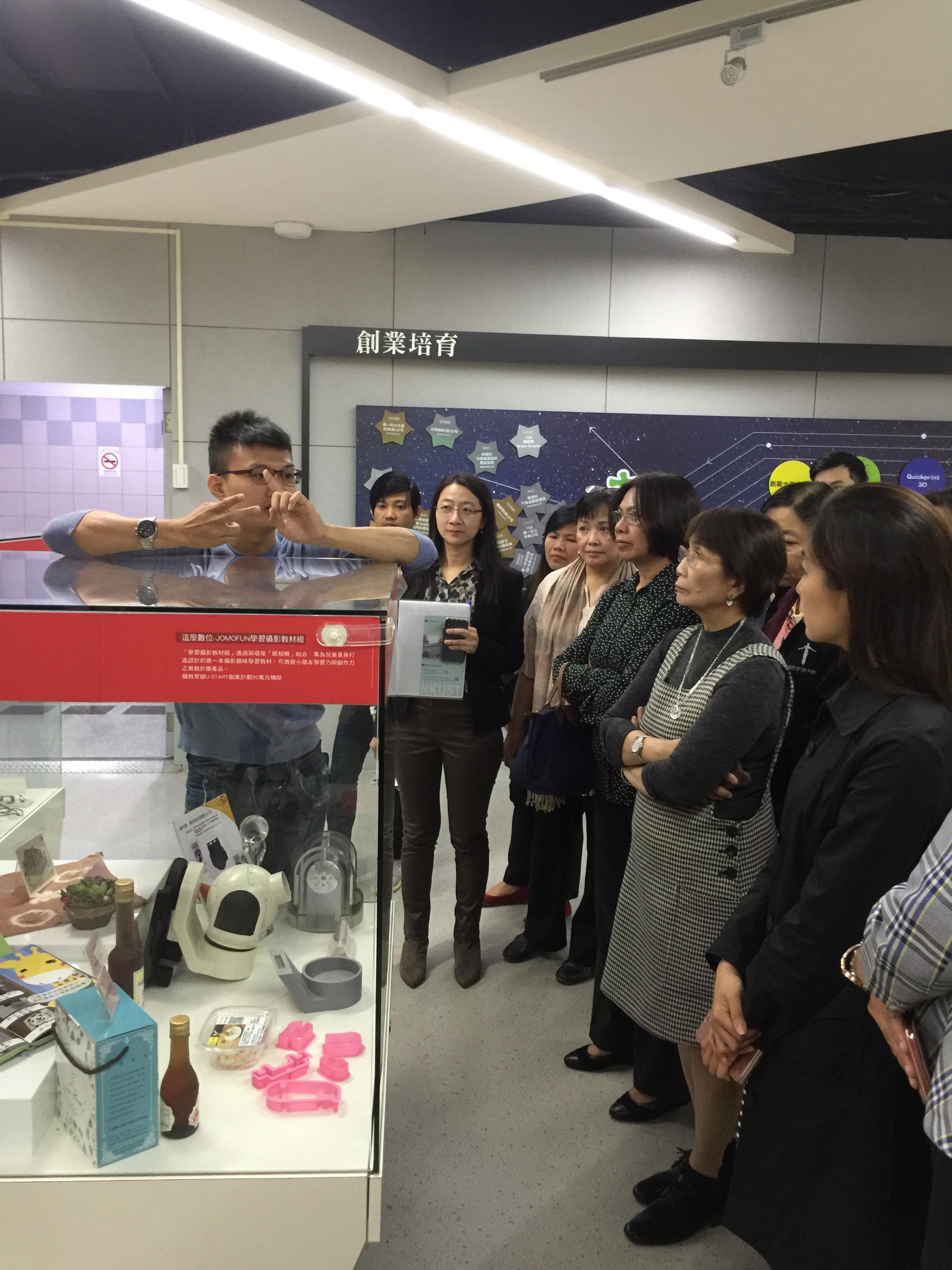UP CIFAL Philippines, in partnership with Edu-Connect Southeast Asia Association-Kaohsiung, organized a four-day learning tour on entrepreneurial development and innovation in Southern Taiwan from December 12-15, 2018.
Seventeen Filipino entrepreneurs and academics joined the learning tour, which aims to foster collaborative learning on the innovative practices of micro, small and medium enterprises (MSMEs) in the Philippines and Taiwan. The activity is a culmination of the series of forums on inclusive business, a project that contributes to the economic development theme of the sustainable development goals (SDGs).
Data from the Department of Trade and Industry show that 99.57% of businesses in the Philippines in 2016 are MSMEs. Taiwan is likewise characterized by small and medium enterprises (SMEs) as they constitute 99.73% of the businesses, according to the Ministry of Economic Affairs in 2016.
UP CIFAL Philippines recognizes the key role of MSMEs in helping achieve the SDGs, especially by promoting decent work and economic growth (SDG 8), as well as industry and innovation (SDG 9). Target 8.2 aims to “promote policies that support decent job creation, entrepreneurship and innovation, and encourage growth of MSMEs.”
On the first day of the learning tour, workshops and MSME visits were conducted at the Taiwan Institute of Economic Research (TIER), the official office of Asia Pacific Economic Cooperation. Southern Taiwan MSME entrepreneurs also presented stories of innovation and how their business flourished under the sole support of Southern Taiwan government on research and development.
Explaining the challenges of starting a small business in Southern Taiwan, TIER Director Dr. Jason Kao said, “A lot of people are doing ‘me, too.’ Startups need to innovate to provide value.”
A Taiwanese entrepreneur also donated a state-of-the-art coffee roaster, later dubbed as the “Lumad (an indigenous group in Southern Philippines) roaster,” after Coffee for Peace CEO Joji Pantoja shared her story on providing jobs for tribes in Southern Philippines to achieve peace.
On the second day, Hama Star Technology, Ltd., a company founded and owned by university professors, shared their insights on the key effects of technology and innovations on business operations.
The delegates visited Mayushan Foods Company where they learned the three key principles of reverence for nature, care for health and wellbeing, and commitment to innovative research and development, which have guided the MSME to thrive.
The delegates also made their own pastries at Jiu Zhen Nan, one of the oldest pastry shops and MSMEs in Southern Taiwan. For the 130-year-old pastry shop, business stands for passing on a culture of excellence and a tradition in the art of baking, which makes the business inclusive.
Day three was dedicated to learning about the university’s primary role in promoting innovative entrepreneurship among the youth. Dubbed as the largest university of science and technology and the best entrepreneurship university in Taiwan, National Kaohsiung University of Science and Technology (NKUST) provides a comprehensive entrepreneurship education framework through an interdisciplinary curriculum that touches on the key dynamics of creativity, innovation and entrepreneurship.
Dr. Chien-Bang Chen from Chung Jung Christian University (CJCU) in Tainan talked about the development of MSMEs, the steps towards becoming a social enterprise, and the role of universities as a necessary incubation center for innovation and entrepreneurship. CJCU houses various facilities that promote innovation and entrepreneurship, such as the Innovation Incubation Center, Big O co-working space, Big O2 start-up hub, O Plus Creative Design Studio and University Spin-off companies.
The tour culminated with a synthesis of what the delegates learned. They emphasized the importance of government support to spur growth and advancement, as well as the university’s contribution in driving aggressive initiatives for entrepreneurship. They also realized that for businesses to be sustainable and inclusive, a partnership among the industry, the city, the university and the enterprise are necessary.

![[RIGHT]unitar_logo](https://cifal.up.edu.ph/wp-content/uploads/2024/01/RIGHTunitar_logo.png)
